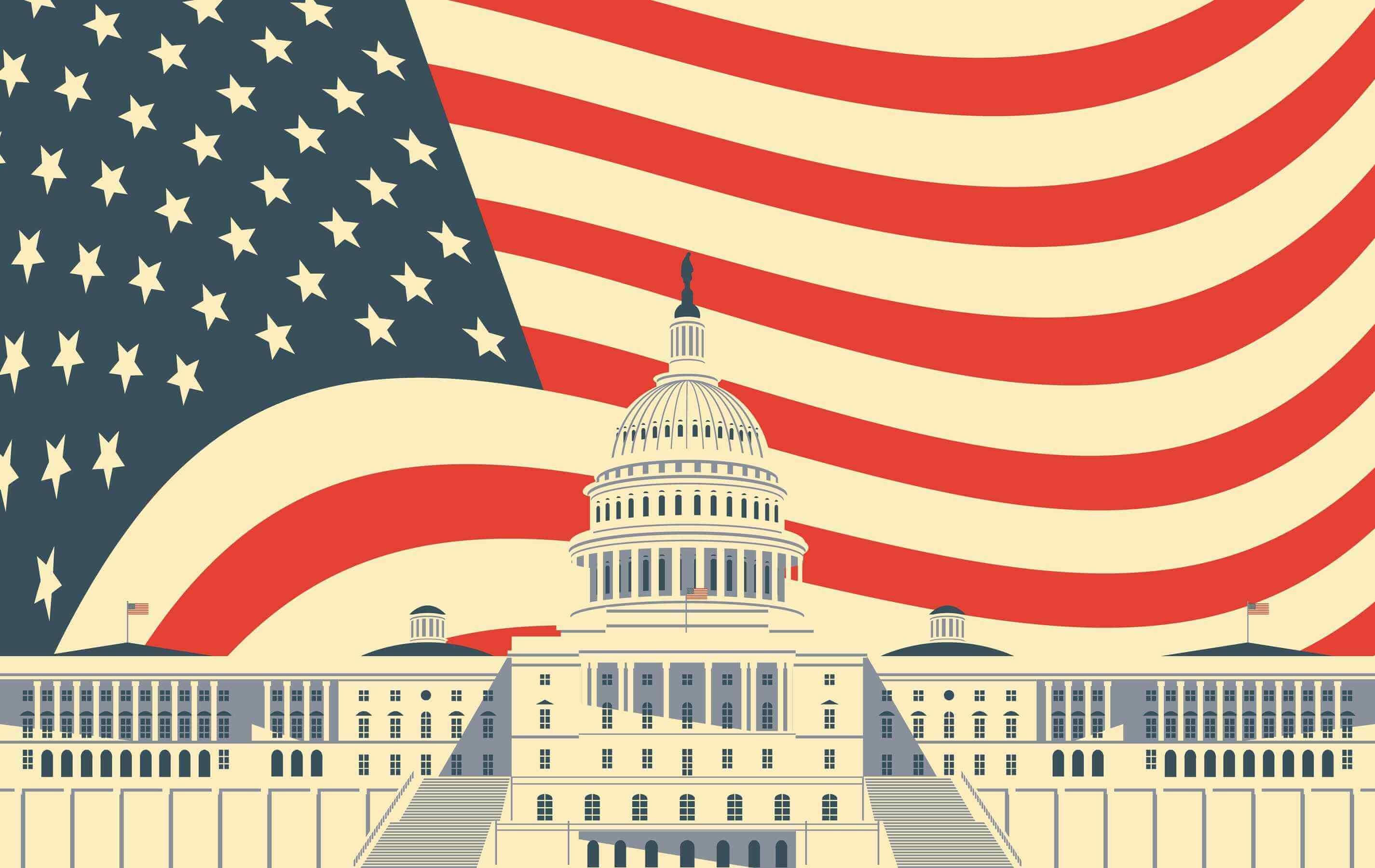Opinion | Resistance To Trump Can Work. I’ve Seen It Happen.

I ’ve seen firsthand how resistance to Donald Trump — both inside and out of government — can stop his illegal plans.
In 2017, I was a young lawyer in the National Security Division of the Justice Department. Trump had just been elected, in part on his promise to impose “a total and complete shutdown of Muslims entering the United States.” In his first week in office, Trump tried to do exactly that, largely halting travel to the United States from seven Muslim-majority countries. That ham-handed order was quickly blocked by a federal court, but by bad luck, my office in the Justice Department became deeply involved in crafting a workable version of this “travel ban.”
I believed that the proposed order was illegal: It was obviously discriminatory in both intent and effect. I also believed it was counterproductive: The order would serve only to enrage Muslim allies and hurt cooperation on counterterrorism efforts. Many other people in the FBI and the rest of the intelligence community agreed, and for months, we argued internally for narrowing the scope of the order, or rescinding it entirely.
In that effort, I saw a number of people display professional bravery. Low- and mid-level employees explained to those far above them why the ban was legally and operationally disastrous. In meetings that strove for a forced consensus, I watched people loudly refuse to give their consent. Those who stood up, it seemed, were not invited back, and I wondered what happened to them, and what harm they experienced to their careers.
My colleagues and I didn’t manage to stop the travel ban from being implemented, but we did narrow its scope to a handful of countries, whereas at one point it included whole swaths of the world.
Throughout, public protest on the travel ban was enormously helpful. Where we might otherwise have felt like lonely voices in a bureaucracy, public outrage gave us courage and the knowledge that we were, in fact, working in the public interest. Advocacy on the outside made advocacy on the inside possible. While protesters, online and in the street, had no way to know it, their work was enormously influential.
The lesson for me as we lurch from one crisis to another at the start of Trump’s second term is that public protest and outrage can actually be effective at stopping or slowing the illegal or unjust policies of his administration. This matters when those opposing such policies are exhausted and overwhelmed. “We’ve marched so much,” one activist told the New York Times. “We’re tired of doing the same thing over and over.” Another added, not unreasonably: “These people coming to the White House don’t care about petitions. They don’t care how many people sign them. They don’t care what they say.”
These activists may be right in a narrow sense: People in this White House are largely unmoved by protest, and may even see acting in the face of public outrage as a kind of strength. But the federal government is a big place, and while various forms of demonstration — petitions, marches, discourse both online and off — may not affect political appointees, they can greatly affect those officials who actually implement so many government policies.
I know such demonstrations mattered because I saw the effect they had on the internal fights over the travel ban. And while our “victory” in narrowing the scope of that order was small, other protesters and other government officials have been far more effective.
In fact, contrary to collective memory, the first Trump administration was often pressured into dropping unpopular policies. Faced with external — and based on my own experience, I suspect internal — opposition, the administration abandoned various plans to deport migrants who were gravely ill, to fine others hundreds of thousands of dollars, and to revoke visas for many international students. The first Trump administration gave up on efforts that received relatively little attention — a plan to close or privatize centers to train firefighters, for instance — as well as those that received a great deal, such as the president’s scheme to halt military aid to Ukraine. Under pressure, the administration even gave up on signature policies: In the face of overwhelming public opposition, for example, the president disavowed his policy of separating migrant children from their parents, even before a court order required him to do so.
What these examples show is that resistance can work. But my own experience suggests such resistance works best if it’s targeted well. It’s largely ineffective for protesters to focus their energy on the government’s top decision-makers, such as the president and his political appointees. On most issues, these people have made up their minds. Protest won’t sway them, and may in fact tempt their antidemocratic instincts. But virtually every government policy must be developed and implemented by people far below those appointees. These people — who swear an independent oath to protect the Constitution — can be affected by public influence, and as public servants, should be. Activism can help them understand issues, and empower them to speak up against illegal or unjust policies. That’s true, even as Trump tries to purge the federal government of anyone who won’t be completely loyal to him.
Activists should think about which officials make and implement their most important policies, and what information will be most helpful to them. For instance, what office will choose which refugees are exempted from the ban on their entry into the United States? What panel will determine whether Covid vaccines remain available to children? Who will be told to shut off payments to disfavored recipients of government funds? For each issue, what arguments will be most persuasive to decision-makers to slow or stop illegal proposals, and what people or groups will be best positioned to make them? How might those already skeptical of such plans be empowered to make those arguments in government? Outsiders don’t just give insiders courage: They give them the arguments and language to best make their case.
This raises a corollary question for the government employees themselves: When should they take action themselves to resist an administration’s policies? For each person, the answer is necessarily different. I do believe that political appointees should be given a wide berth to implement their plans, even those that I might find unwise or even odious. The country’s bureaucracy shouldn’t second-guess the country’s democracy. But every government employee also takes an independent oath to uphold the Constitution. For me, that oath requires opposing those policies that are clearly illegal, discriminatory or corrupt. In the months ahead, those still in government should think through what their own obligations are, and how they will fulfill them.
For those who decide that their oath requires opposition, there is much that can be done.
Simply by refusing to join in contrived consent in meetings, officials can force political appointees to reckon with the problems of their plans. Employees can memorialize the legal problems with initiatives, so that appointees cannot later feign ignorance about possible violations of the law. Consistent with the Whistleblower Protection Act, employees can raise their concerns to outsiders too, and groups like Whistleblower Aid can help them do so legally. And, if necessary, employees can leave noisily. That’s what I did last month when I resigned in opposition to Trump’s pardon of Jan. 6 rioters. Just as activists should not underestimate their power, government employees should not either.
To all this, an exhausted activist might say that none of this matters because the new administration will simply fire those who oppose it. Perhaps. But three points are important here.
First, the new administration has had mixed success purging its perceived opponents, and some offices have thus far been able to resist illegal mass firings. Second, while court orders to stop such illegal firings might not mean much to someone like Elon Musk, they can mean a lot to the lawyers who can be disbarred — or the lackeys who can be jailed — for ignoring them. Third, to the extent the administration wants to do more than simply cut the size of government — an issue that, notably, does not seem to particularly interest the president — it will need to rely on existing officials to carry out its agenda. From deportations to trade wars to prosecutions of perceived enemies, the president’s plans will rely on federal employees, and these employees can be powerful.
For those of us who do not want our government to become more lawless, corrupt, or discriminatory, these are distressing times. In the past few days alone, the president has proposed to ban trans people from the military, largely shutter foreign aid and deploy the military on U.S. soil to deport migrants. But the administration’s orders are, on inspection, generally poorly reasoned and poorly written. Already, this new administration has rescinded its freeze on trillions in government spending, and backed down from a threatened North American trade war. The success of his initiatives depends on the perception of their own momentum. If that momentum is slowed, the damage of some orders will be contained; others may collapse completely.
While protesters are reasonable in feeling exhausted, they should not feel powerless. I have seen it myself: They are more powerful than they realize.


